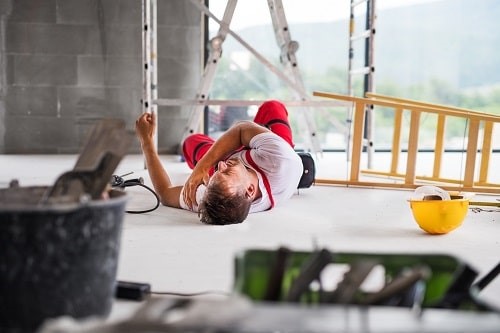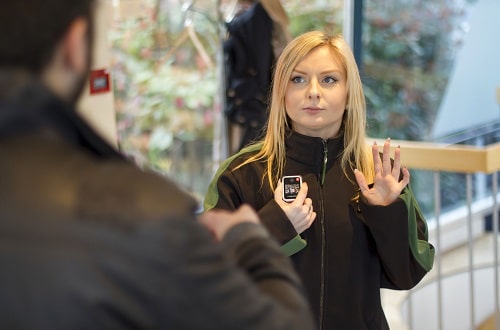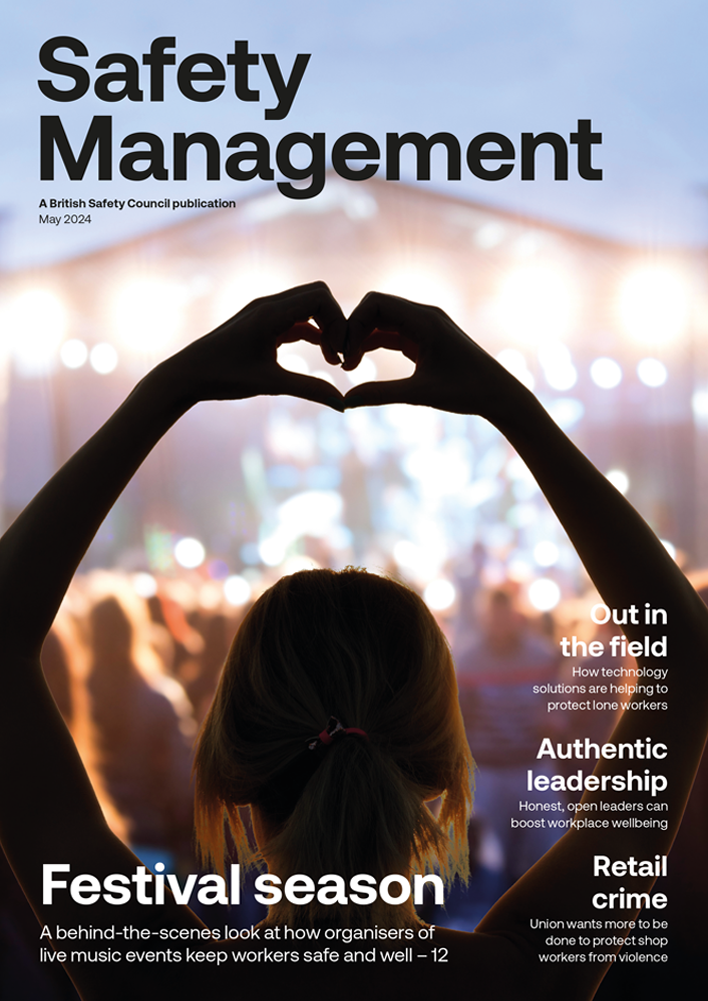A new charity aims to prevent deadly falls from height by encouraging research into the behavioural changes needed to make work at height safer.
Features
Let’s not fall for it
The No Falls Foundation is the UK charity dedicated to preventing falls from height and helping people affected by the life-changing consequences of a fall. Supported and championed by the Access Industry Form (AIF), the Foundation has three principal objectives: raising awareness of the risks associated with working at height; researching the causes of falls; and providing advice and support to those affected by a fall.
The need for a charity dedicated exclusively to the work at height sector is clear. Falls from height remain the single biggest cause of fatalities in the workplace.
 In the 12 months to March 2020, 29 people died and there were 5,214 non-fatal falls. Photograph: iStock
In the 12 months to March 2020, 29 people died and there were 5,214 non-fatal falls. Photograph: iStock
In the 12 months to March 2020, 29 people died and there were 5,214 non-fatal falls reported under the Reporting of Injuries, Diseases and Dangerous Occurrences Regulations (RIDDOR).
2021 will see the Foundation begin work on creating the No Falls Charter, a unique initiative that embodies best practice taken from existing regulations, policies, standards, guidance and a wide range of industry bodies.
Intended for adoption and implementation by industry at large, it will enable companies to make a tangible commitment to preventing falls and to make that commitment both transparent and demonstrable.
2021 will also see work proceed on framing a research project to investigate the root causes of falls from height and the changes and advances that need to be made in behavioural psychology to prevent these falls.
Meanwhile, the Foundation continues to advocate its support for a more comprehensive system of recording falls from height – as recommended by the inquiry report of the All Party Parliamentary Group (APPG) on Working on Height (bit.ly/3s0NXnx) – to better inform policy-making and decision-making.
Just launched by the charity is a Support and Information Pack for people who have been injured in falls (and their families), signposting to the organisations and resources available to provide advice and assistance. The free pack covers a wide range of topics, including:
- What to do immediately
- What financial assistance may be available
- How to begin a personal injury claim
- Support with transport and home adaptations
- Using the befriending service from the No Falls Foundation
- Organisations that can help with issues of mental health.
For those who have experienced the loss of a loved one as a result of a fall from height, the pack also provides details of those organisations that can offer help and support.
 No Falls Charter is a unique initiative that will help companies make a difference to preventing falls. Photograph: iStock
No Falls Charter is a unique initiative that will help companies make a difference to preventing falls. Photograph: iStock
Chris Kendall, one of the charity’s trustees, says: “What should have been a perfectly normal day has ended in a potentially life-shattering accident. What do you do now? Who can you turn to? What help is available? The pack attempts to answer these questions and provides contact details for the Foundation.”
The charity is also inviting people to share their personal stories of suffering a fall from height and experiencing its consequences. Chris Kendall says: “We want to develop a series of case studies on the Foundation’s website for the benefit of others. If anyone would like to contribute to the work of the charity in this way we would be delighted to hear from them.”
Finally, the Foundation now publishes a bi-monthly e-newsletter, Saving Lives, which contains details of all the latest news and developments at the charity.
Hannah Williams is Charity manager at the No Falls Foundation
FEATURES

Purchasing body-worn cameras: 10 top tips
By Alasdair Field, Reveal Media on 13 May 2024
Body-worn cameras can reduce the risk of violence and threats to staff by providing a deterrent effect and documentary evidence for pursuing aggressors, but it’s important to carefully consider issues like functionality, data storage and user training during the selection process.

Vulnerable workers: protection is key
By Naz Dossa, Peoplesafe on 13 May 2024
From working alone to commuting after hours, workers can be vulnerable to threats, aggression and harassment – but training and the right technology can help.

AI and worker wellbeing: a new risk for employers
By David Sharp, International Workplace on 10 May 2024
Data generated by machine learning and artificial intelligence at work looks set to play a huge role in boosting both worker health and safety and business productivity, but it’s vital that workers’ data used for algorithmic processing is handled lawfully, fairly and transparently.



